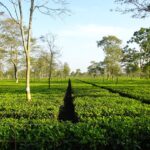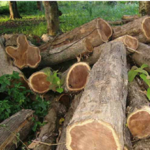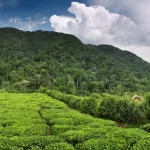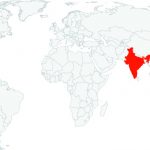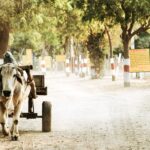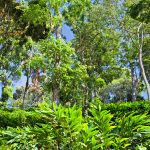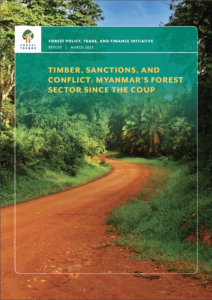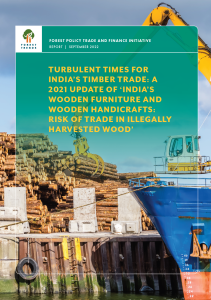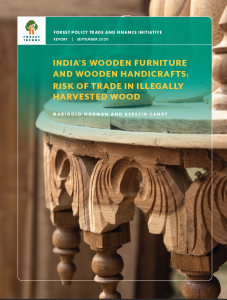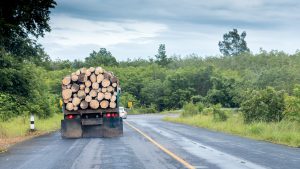
India, one of the leading producers of Non-GMO soybeans, is taking significant steps to align with the European Union Deforestation Regulation (EUDR). In FY 2023–24, India produced approximately 113 lakh metric tons (11.3 million MT) of soybeans. As global demand for traceable, deforestation-free Non-GMO soy rises, especially from European markets, Indian stakeholders are strategically positioning the country as a key supplier.
India’s competitive advantage lies in its largely Non-GMO soy cultivation, unlike major producers such as Brazil and the USA where GMO crops dominate.
To facilitate this shift, the Soybean Processors Association of India (SOPA) Is partnering with TRST01, a sustainability technology leader, to enable exporters and farmers to comply with EUDR requirements efficiently and affordably . Key Features of TRST01’s EUDR Solution:
• Geo-mapping of soy cultivation areas
• Digital traceability from farm to port
• Immutable blockchain records for audit trail
• Automated generation of GeoJSON files and Due Diligence Statements (DDS)
• Farmer onboarding, training, and field support
In a major crackdown on illegal logging, the Dhubri Forest Department on Friday dismantled an unauthorised timber mill operating in the Piazbari area of Gauripur and seized a substantial quantity of smuggled wood.
The raid was conducted under the direct instructions of Golap Kumar Bania, Divisional Forest Officer (DFO) of Dhubri. The operation was led by Forest Range Officer Sofikur Rahman, supported by a team of alert forest guards. The illegal mill was found cleverly hidden within dense bamboo thickets, making detection difficult.
The Sarpomari Reserve Forest, located under the Salkocha Forest Range of Dhubri Forest Division, is facing severe ecological degradation due to rampant illegal logging. The destruction, allegedly carried out with shocking impunity, has raised alarm among environmentalists and locals, as suspicions mount over possible collusion by forest officials.
Once a thriving sanctuary of biodiversity, the Sarpomari Reserve Forest is now being stripped of its rich Sal tree cover—one of the region’s most valuable and ecologically important species. Sources report that tree felling operations continue unabated, even in broad daylight, suggesting a well-organized and unchecked network of timber smugglers.
Sri Lanka’s largest single seizure of narcotics occurred in December 2016, when Customs found 800 kilos of cocaine in a transshipment container of timber destined for India.
As it stands, New Zealand and India’s trade is worth $3.14 billion, with forest products alone valued at $126m (also made up of a surge of wood products, now worth $76.5 million and up from $9.5 million in 2023).
The security forces have seized 610 tons of “illegally transported” timber worth Rs 3.10 crore in Manipur’s Tengnoupal district, adjoining Myanmar, officials said on Monday. A defence spokesman said the illegally procured timber was carried in 61 trucks, and the vehicles have also been confiscated under the Motor Vehicles Act, 2019 and the Manipur Forest Rules, 2021.
A police official separately said that the police, in coordination with the Forest Department officials, are conducting a probe to ascertain the origin of the huge consignment and where these was intended to be delivered. Police are also trying to find out whether the timber was smuggled from neighbouring Myanmar, which shares a 398-km-long unfenced border with Manipur. The Union Ministry of Home Affairs had earlier decided that the entire 1,643 km porous India-Myanmar borders with four northeastern states — Manipur, Mizoram, Arunachal Pradesh and Nagaland — known for the smuggling of arms, ammunition and narcotics, would be fenced at a cost of Rs 31,000 crore.
RSS (Red Sanders Special) ADJ court on Friday sent a smuggler undergo 5 years imprisonment for smuggling red sanders logs. The court also ordered a penalty of Rs 3 lakh by the smuggler for illegal smuggling of Red Sanders and was arrested under Cr No 56/2018. According to prosecution, the smuggler caught by the RSASTF (Red Sanders Anti-Smuggling Task force) when he was smuggling red sanders logs in the forest area of Nagapatla East beat, Tirupati division.
Collective efforts to protect forests have resulted in the arrest of five timber smugglers in India.
Officials acting on a tip apprehended five people smuggling illegal timber under the cover of night near Halmatpora Aloosa in northern India, according to Kashmir News Service. A significant quantity of illegal timber was recovered.
To be sure, India’s transformation from a food-deficient nation to a food-surplus powerhouse is one of its biggest success stories.
In the 1950s and ’60s, the country relied on food aid to feed its population, but a series of agricultural breakthroughs changed that. India became self-sufficient in staples, and became the world’s largest milk producer.
The weighted average tariff – the average duty rate per imported product – in India on US farm products is 37.7%, compared to 5.3% on Indian agricultural goods in the US, according to the Delhi-based think tank Global Trade Research Initiative (GTRI).
Studies suggest that Jammu and Kashmir is losing its forest cover at an alarming rate, with illegal encroachments, overgrazing, and climate change accelerating the damage. The once-mighty rivers, fed by forest-fed springs, are drying up. Landslides, previously rare, are now a seasonal disaster.
In a continued effort to curb illegal timber trade, the Forest Department seized in Lanka of Hojai, Assam, intercepted a vehicle carrying a large quantity of timber on Saturday. The forest department’s operation in Lanka was part of a larger crackdown on illegal timber trade in the region.
Bhutan has shipped shipped more than 50,000 cubic feet of timber to India through the kingdom-owned Natural Resource Development Corporation over the last three months alone. It comes after the Kingdom established Bhutan’s first “scientific thinning programme” in 2023 – setting a highly ambitious target of more than 10.7 million cubic feet of timber for annual export from 2024 to 2026.
Exports vary, with teak—often used in boat building and high-end furniture—walnut and sal amongst the most popular species.
In a crucial meeting, the Deputy Commissioners (DCs) of Assam’s Tinsukia and Arunachal Pradesh’s Changlang districts convened to address key cross-border issues and strengthen cooperation between the neighbouring regions. The discussions primarily focused on border management, illegal mining, infrastructure development, and joint efforts in forest conservation.
The alleged chopping of centuries-old chinar trees in Indian-administered Kashmir has sparked outrage, with locals and photos suggesting they were cut down, while the government insists it was just routine pruning. The debate has renewed focus on the endangered tree and efforts to preserve it.
FSC and Assurance Services International (ASI) announce the launch of the Teak Corridor transaction verification (TV) loop. FSC and ASI have conducted TV loops on FSC-certified high-value timber species like teak (Tectona grandis) in the past. The previous teak TV loop, along with other available information, indicate the possibility of integrity risks in the segregation of FSC-certified and non-certified teak in the supply chains.
Therefore, FSC recommends certificate holders with teak in their certification scope to apply additional due diligence in selecting their teak suppliers and following FSC rules to ensure that the teak products they purchase are legitimate and within the FSC certificate scope of the seller.
The recent report by the Union Ministry of Forest and Environment paints a grim picture, with 242 square kilometers of forest disappearing in recent years. Experts deem reforestation efforts futile due to rampant deforestation . Sources reveal the forest cover’s decline stems from large-scale deforestation facilitated by smugglers and the collusion of corrupt officials and political leaders. Organized gangs exploit these connections to earn profits from illegal logging and smuggling.
The Himachal Pradesh Forest Department has constituted a committee to investigate the alleged illegal tree felling in Mani beat of Masroond Forest Range in Chamba district.
The development came after Bhuvneshwar Sharma, a social activist, alleged large-scale illegal logging in the Mani Beat, claiming that green trees were felled and the stumps were subsequently burnt to eliminate evidence. Sharma also accused the department of failing to take appropriate action despite being informed about the issue. It is noteworthy that apart from the issue of illegal felling, a complaint was filed with State Vigilance and Anti-Corruption Bureau against alleging large scale extraction of Kashmal (Berberis aristate).
The government, through notification no. FFE-B-A(3)-5/2020 dated January 4 has strictly prohibited the cutting and removal of trees and timber, with exceptions only for three specified species, states the memo.
Expressing concern over the findings of the latest India State of Forest Report (ISFR) which reveals a significant decline in forest cover in Assam, Deputy Leader of the Congress party in the Lok Sabha, Gaurav Gogoi, on Monday urged the Central government to take measures to protect the State’s unique ecosystems, safeguard the livelihoods of the local communities, and mitigate the impacts of climate change. These issues include deforestation, illegal activities, and concerns over un- sustainable land use practices,” he stated.
The Economic Advisory Council to the Indian Prime Minister has called for de-regulating timber cultivation to increase teak resources. Members say a complex regulatory system that limits timber planting, felling and transit, combined with increased demand for furniture, plywood and timber for construction, has increased India’s dependence on imports.”
Forest department officials and local police in a raid in the Tarani Reserved Forest of Tinsukia district busted a major timber smuggling operation. The forest department says the wood was destined for saw and veneer mills in neighboring Arunuchal.
Illegal logging continues to be a challenge in the region, despite a Supreme Court ban on tree feeling and timber movement from seven northeastern states, including Assam and Arunachal since 1996. This ban effectively suspends the operations of saw, playwood and veneer mills in these states. However, the frequent seizure of illegal timber indicates that the ban is now working.
Billionaire Yevtushenkov’s Segezha Group continues to destroy huge volumes of ancient forests in Karelia as part of a growing trade with China and India.
The Segezha Group, controlled by the family of billionaire Vladimir Yevtushenkov, was, from the 1990s until mid-2022, subject to full FSC certification. This meant that the timber giant agreed to a moratorium to protect millions of hectares of ecologically rich Karelia forests near the Finnish border in exchange for selling timber into “ecologically sensitive” EU markets. “Between June and November 2022, Segezha Group opted out of the logging moratorium in ecologically valuable forests across Russia: from Karelia to Komi, Krasnoyarsk, Irkutsk, and Arkhangelsk,” Vox Europe said last year. “According to World Wildlife Fund, the total forested area Segezha withdrew from protection and is now allowed to log is 1.5 million hectares (3.7 million acres).”
The Indian plywood industry has been struggling due to the high prices of plantation poplar and eucalypts, where prices reached an all-time high in 2024. The impact of the surge in prices resulted in some mills in north India either reducing production or even closing mills. India’s switch to pine log peeling for the production of plywood core veneer has emerged as a survivor for the sector. After successful trials at Kandla-based plywood mills, pine logs have been utilised in plywood mills throughout north India.
Meanwhile, the rise in plywood orders placed by Indian imports with manufacturers in Vietnam is reflected in the arrival in India of 1500 containers of plywood last month. Market analysts claim as many as 2500 containers of plywood could be arriving in India before the end of the year.
The article highlights the interstate illegal timber smuggling across northern Assam.
In response to an assault on a forest guard, the Forest Department launched a large-scale operation to crack down on illegal logging activities in the Singadhar forest beat in Salooni division of Chamba district. The operation, which began on Monday, targeted villages surrounding the forest and uncovered significant amounts of illegally felled timber, logs and planks hidden in private homes.
Nagaland Post has consistently reported on systematic poaching, land encroachment, and illegal logging within Intanki National Park (INP) and the Rangapahar Reserve Forest. Hunting and poaching of wildlife, both for local consumption and for sale in local markets, remained the biggest threat to the park, with local demand driving the illegal hunting of birds and animals.
Delay fuels speculations of major forest cover reductions, especially in unclassified forests under the 1996 TN Godavarman judgement, alongside fears of exaggerated forest cover figures hiding true deforestation.
Despite claims of increasing forest cover, international organisations like Global Forest Watch (GFW) have reported that India lost approximately 23,300 square kilometres of tree cover between 2001 and 2023, Prakriti Srivastava, a retired principal chief conservator of forests (PCCF) from Kerala and one of the petitioners challenging the FCA, pointed out.
According to the Indian Centre for Science and Environment, the country’s 2022 demand for timber was 63 million cubic metres—30 million cubic metres for domestic production and 33 million cubic metres from imported sources.
Uruguay is India’s top market for sawlog, with India’s Ministry of Commerce and Industry reporting that Uruguyans account for more than 20% of total trade for the first six months of 2024 (487,700 cubic metres) ahead of Australia (14.4% or 347,600 cubic metres), Ecuador (12.1% or 293,300 cubic metres), Argentina (9.1% or 213,700 cubic metres) and the United States (7.6% or 193,000 cubic metres).
India has emerged as one of the United States’ most important export markets, with 116,000 cubic metres of softwood lumber shipped from the West Coast to India last year alone. Already its fastest-growing hardwood market, the US is capitalising on India’s construction industry and, in the process, making up for a drop in Chinese demand—with total lumber exports almost tripling for the first six months of 2024 over last year.
While import volumes remain lower in 2024 compared to 2023, India is competing with China to become the world’s largest consumer market for structural timbers. The Modi Government is grappling with a 19 million-unit housing shortage, which will double over the next five years.
Fuelling India’s demand for roundwood is a decision made in 2020 to reverse a 27-year ban on using timber in public buildings.
Russia’s supply chain is bleeding, with Western sanctions to blame for one of Russia’s largest forestry and paper companies urgently raising funds through the Moscow Stock Exchange— causing its share price to plunge more than 20% in a single day’s trade.
Russia is suffering from high logistics costs, slowing Chinese demand, and increased competition from India, Brazil, and Argentina, forcing mills to cut production volumes.
On August 21, forest officials conducted a surprise raid in the Kaliabor area following a tip-off about illegal timber activities. The team discovered a large stash of timber, estimated to be worth several lakhs of rupees. The timber was found hidden in a remote location, concealed under tarpaulins to avoid detection.
This seizure is part of a broader strategy by the Assam forest department to combat illegal logging and timber smuggling, which have been persistent issues in the region. Officials have ramped up their vigilance and enforcement measures in recent months to curb these activities.
In a major crackdown against illegal sawmill operators in the plain belt region, the GHADC forest department recently closed down two illicit sawmills in West Garo Hills. A significant quantity of illegal materials was seized during two separate raids led by the Phulbari range forest officer at Masangpani and Nimaikata villages where over 100 CFTs of non-Sal wood like Poma, Sisodiya, etc, valued at approximately Rs 800 per CFT were recovered.
China (and India) are now targeting Kenya and its 100,000-plus hectares of Blue Gum tree plantations, fueling a new wave of timber plants that are now processing veneers.
A significant amount of timber has been seized by police in Lakhipur. There have been persistent allegations that this illegal logging is being facilitated with the cooperation of the Lakhipur Forest Range Officer and other forest officials.
Indian plywood demand, like the UK and the United States, is experiencing a surge due to the country’s booming infrastructure projects and a shift in interior design preferences—despite a freefall in total lumber imports..
According to the Federation of Timber Merchants and Sawmillers, Indian builders and furniture makers are now turning to plywood (not lumber) to fuel growth in government infrastructure projects and real estate. With real estate expected to contribute about 13% to India’s GDP by FY25 and reach US $1 trillion by FY30, the momentum gained by the post-pandemic recovery has significantly impacted the demand for plywood.
The smuggling of teak or more precisely Burmese teak wood (Tectona grandis) from Myanmar has become a significant issue, with reports of high-profile seizures and arrests across India. This has highlighted the scale and complexity of the problem in the East and Northeast India.
Recent incidents reveal the extensive network of smuggling routes and the lengths to which traffickers go to conceal their illegal activities. From hiding timber under coal sacks and bamboo to using false documentation, smugglers employ sophisticated methods to evade detection. The involvement of individuals from various states, including Haryana, Rajasthan, and Uttar Pradesh, highlights the widespread nature of this illegal trade. The continuous seizures and arrests reflect the ongoing efforts of law enforcement agencies to combat this menace. However, the persistence of smuggling activities indicates the need for more robust measures and international cooperation to curb the illegal trade of Burmese teak.
While this USAID project mainly focuses on domestic deforestation and forest degradation from unsustainable use, agricultural expansion and infrastructure development, it mentions that it will support the development of Forest-PLUS tools which allow authorities to more accurately trace the origins of timber to stop illegal logging. A traceability system for domestic timber is a great first step towards a traceability system for all timber (including imported timber).
According to Eurostat, the EU’s statistical office, between June 2021 and December 2023, the EU imported more than €34 million worth of teak directly from Myanmar.[1]
Notably, total teak imports from Myanmar into the EU decreased from around €23.5 million in 2022 to just over €3.8 million in 2023. While this is a positive decrease in the trade, this figure should be at zero.

Teak decking on a sailing yacht
And does this tailing off of direct trade mean demand for teak has decreased? It is unlikely. EIA strongly believes that Burmese teak is being shipped into EU and US markets via other countries by traders who disguise the wood’s true origin to circumvent sanctions.
A prime example is that of neighbouring India, which has seen an increase of teak imports into the EU rise from a total figure of around €500,000 in 2021 to nearly €7.5 million in 2023, according to Eurostat.[2] Similar upward trends are seen for shipments to the US, according to the global trade database Panjiva.
Myanmar is the most violent place in the world, ranking just above Syria and Palestine, according to data from the Armed Conflict Location and Event Data Project. Since the 2021 coup, the international community has imposed economic sanctions to restrict the military generals’ ability to enrich themselves from Myanmar’s natural resources and business ventures.
One strategy that the military employs is circumventing sanctions in order to sell timber to international buyers. According to its own reporting, Myanmar exported $235.6 million worth of timber between October 2021 and mid-2023. Actual production levels are likely much higher than official reports due to the prevalence of cross-border smuggling.
As much as 80 percent of timber leaving Myanmar is smuggled to India and China, according to research published in 2021 by the Global Initiative Against Transnational Organized Crime. The organization’s investigations show that smugglers often conceal logs in oil tankers and humanitarian vehicles, but in some cases, they operate out in the open.
This media report highlights human trafficking into Laos. The Indian Embassy in Laos specifically mentions links to mining and timber factories.
The Irrawaddy River is a flashpoint for conflict timber, with more than 100 tons—and sometimes up to 300 tons—of teak and other species leaving Myanmar ports every week.
The teak is then traded into Western Markets (including Italy, teak’s entry point into the EU) via China, India and Indonesia, with proceeds used to fuel both sides of the conflict.
Yesterday, Mynamar officials announced that more than 1,600 tons of teak (more than 250 tonnes a week) had been confiscated over the past six weeks, in a major escalation in the trade across borders. And that is just the timber, deemed “illegal” by the junta-controlled government – with the hidden trade in teak booming amongst the junta’s allies.
With little information about illegal logging within India itself in the press, this article is short but outlays the entities responsible for enforcement. The Forest Protection Force (FPF) Ganderbal along with the Forest Department and Sonamarg Police, seized an LP truck loaded with chinar tree timber in the Sonamarg area of Central Kashmir’s Ganderbal district.
UNODC’s 2024 World Wildlife Crime Report has a case study on the illegal trade in rosewood, with a focus on Nigeria. Major players in the case study include China, India, Singapore, Mali, Guinea-Bissau, Brazil, Vietnam and Ghana.
Alittle bit of background information on Myhanmar – India border controls on timber trade: A statement by the Public Relations Officer, Headquarters IGAR (South) stated, ‘In the absence of the Free Movement Regime (FMR), any movement of any good including timber across the IMB is illegal.
Timber originating from Myanmar is subject to stringent regulations mandating passage through the Integrated Check Post, Moreh to fulfil custom duties.
Assam Rifles issued a rebuttal to allegations of harassment by local timber transporters, emphasizing compliance with regulations and their commitment to upholding directives from the Central and State government regarding border security and cross-border trade.
Asia’s two largest markets for timber are now competing to grow extensive land ocean port networks through Southeast Asia.
China targeting new ports in Sri Lanka, the Maldives and Bangladesh to add to its extensive land and ocean port network. India Ports Global (IPGL) is spearheading India’s new overseas port network, gained rights to operate a new international port, Sittwe, in Myanmar. The junta-controlled government gave the company the keys to a significant timber-producing port on the Kaladan River.
The two regional superpowers are now engaging in a new great game, with China targeting new ports in Sri Lanka, the Maldives and Bangladesh to add to its extensive land and ocean port network.
Yesterday, India Ports Global (IPGL), spearheading India’s new overseas port network, gained rights to operate a new international port, Sittwe, in Myanmar. The junta-controlled government gave the company the keys to a significant timber-producing port on the Kaladan River. The new port will supply timber merchants in Vizag in Andhra Pradesh and Kolkata in West Bengal, bypassing Bangladesh to trade with the Northeastern states.
India is expanding its network of overseas ports, expanding its tentacles on regional timber supply chains and following China’s playbook to exert economic influence across the Indo-Pacific.
The two regional superpowers are now engaging in a new great game, with China targeting new ports in Sri Lanka, the Maldives and Bangladesh to add to its extensive land and ocean port network.
Yesterday, India Ports Global (IPGL), spearheading India’s new overseas port network, gained rights to operate a new international port, Sittwe, in Myanmar. The junta-controlled government gave the company the keys to a significant timber-producing port on the Kaladan River.
Assam Rifles troops seized a significant amount of timber worth Rs 4.88 crore (about US$ 587,840) at the Manipur-Myanmar border. 50,603 cubic feet (CFT), is believed to have originated in Myanmar.
As global tea demand grows by over 2% annually, the pressure on land for cultivation may lead to increased deforestation and greenhouse gas emissions, further intensifying the impacts of climate change. Once tea is plucked it must go through various stages of processing, including withering and drying: energy-intensive processes that often use vast amounts of wood or, in some cases, fossil fuels such as coal. This not only results in CO2 emissions, but also has the potential for “hidden deforestation” for wood to burn.
Teak (Tectona grandis) is one of the premier hardwood timber species in the world and a symbol of prosperity. But in India, teak planting, characterised by its high costs and relatively meager returns, has contributed to a sense of reluctance among farmers to engage in tree plantation initiatives. In addressing this challenge, a shift in strategy is warranted.
Given India’s historically high imports of Myanmar teak, now sanctioned in many consumer markets around the world, this article gives a good background on India’s own teak production and its interplay with Myanmar imports.
Last year, Wood Central reported that Indian demand for Roundwood will grow 70%, from 57 million cubic metres in 2020 to 98 million cubic metres in 2030, driven to a large degree by a surge in construction activity.
According to the Indian Centre for Science and Environment, the country’s 2022 demand for timber was 63 million cubic metres – 30 million cubic metres for domestic production and 33 million cubic metres from imported sources. The race to make up the shortfall has seen India compete with China to become the world’s largest consumer market for structural timbers, with the Modi Government grappling with a 19 million unit shortage in housing, which will double over the next five years.
According to the Indian Centre for Science and Environment, the country’s 2022 demand for timber was 63 million cubic metres – 30 million cubic metres for domestic production and 33 million cubic metres from imported sources.
The race to make up the shortfall has seen India compete with China to become the world’s largest consumer market for structural timbers, with the Modi Government grappling with a 19 million unit shortage in housing, which will double over the next five years.
This article summarizes various reports on India’s timber supply gap.
Mon Zin, a founding member of the Global Myanmar Spring Revolution, told the Green Left and Socialist Alliance forum that timber and wood imports increased between 2020–21.
Since India lifted a 27-year ban on using timber in public buildings, the country is now the world’s largest consumer of wood for residential construction.
According to the Indian Centre for Science and Environment, the country’s annual demand for wood is 63 million cubic metres – 30 million cubic metres for domestic production and 33 million cubic metres from imported sources.
As reported in July, India is emerging as a leader in global afforestation and has now set a target to restore 26 million hectares of forest land. In addition, the country plans to create 2.5-3 billion tonnes of additional carbon sinks.
For the past 11 years, Global Witness has documented and denounced waves of threats, violence and killings of land and environmental defenders across the world, and 2022 marks the beginning of our second decade documenting lethal attacks. The world has changed dramatically since we started documenting these in 2012. But one thing that has not changed is the relentlessness of the killings.
Last year, at least 177 defenders lost their lives for protecting our planet, bringing the total number of killings to 1,910 since 2012. At least 1,390 of these killings took place between the adoption of the Paris Agreement on 12 December 2015 and 31 December 2022.
India’s red sandalwood is one of the most expensive timbers in the world. It is also an endangered species.
An international black-market trade in it has decimated valuable forests, with armies of smugglers terrorising local law enforcement. One man stands accused of being at the top of the trade – Sahul Hameed. Hameed is wanted by Indian authorities and Interpol for trafficking the prized wood. But he remains at large. 101 East investigates Hameed’s alleged links to organised crime and the global efforts to bring him to justice.
The ED has begun a crackdown against syndicates involved in environmental crimes, including illegal mining of natural resources and smuggling of wildlife parts. The agency said it has taken up a probe into 17 cases related to environmental crimes, and 42 specifically related to wildlife.
The agency also started booking syndicates engaged in plundering of natural resources under the money laundering act. This includes illegal mining of coal, sand and other natural resources. There have been cases of illegal logging, wildlife and environment related cases.
With opening of the new Sittwe port on May 9, 2023, located at the Kaladan river delta, trade between Myanmar and India is likely to get a boost. Exports from India to Myanmar through this new shipping route may include construction materials such as cement, steel and bricks, among others, whereas India’s imports from Myanmar would be rice, timber, fish and seafood.
The new port opens an alternate sea route for the north-eastern part of India through Myanmar.
The EU Deforestation Regulation (EU-DR), adopted by the EU Council earlier this month, covers about 479 items exported by India such as meat, leather hide, wood furniture, paper and coffee, and is set to affect Indian exports worth an estimated annual $1.3 billion.
The significant products affected and their export value to the EU are Coffee (USD 435.4 million), Leather hides, skin, preparations (USD 83.5 million), Oil cake (USD 174.5 million), Paper, paperboard (USD 250.2 million) and Wood furniture (USD 334.6 million). This is estimated by a Delhi-based research firm Global Trade Research Initiative.
The report suggested the government take a few steps to deal with the regulation and that includes taking up the matter with the World Trade Organization (WTO) along with other affected countries as it violates MFN (most favoured nation) and national treatment principles. “India has a functioning blockchain-enabled trace and track system being implemented by the Agricultural & Processed Food Products Export Development Authority (APEDA) for grape exports to the EU and other regions.”
The revelations mirror Deforestation Inc. findings from around the world, which showed how auditing firms hired as environmental verifiers often ignore or fail to identify serious transgressions by their clients.
Audit firms in Finland, Indonesia, Chile, India, and Germany are also mentioned.
U.S. hardwood exports to India reached an all-time high in 2022 with the value of hardwood lumber and veneer exports totaling USD 8.618 million, according to AHEC.
Exports of U.S. hardwood lumber to India jumped significantly last year to reach an all-time high, and beating the record set in 2021, indicating far more than just a post-COVID recovery. Increasing certification requirements, and both the restricted and deteriorating quality of supply of domestic species is driving Indian furniture manufacturers to look at viable alternative hardwood species not only for the domestic furniture and interiors market, but also for re-exports of value-added products.
Indonesia’s furniture and crafts exports reached US$2.8 billion in 2022 and the government hopes that exports will increase to US$5 billion in 2024.
The Ministry of Industry has two strategies to improve profitability in the sector. First, greater emphasis on the domestic market as the size of this market, especially the middle class segment, continues to expand. The second is exports to non-traditional markets for example India and the Middle East where growth in the property sector is relatively stable.
The Indonesian Furniture and Craft Association (HIMKI) chairman, Abdul Sobur, revealed that exports to the EU declined in 2022 so HIMKI members are now investigating the Middle East markets such as Qatar, Israel and the United Arab Emirates.
Logging has accelerated amid the post-coup conflict, with sanctions pushing smugglers to open new routes to India, while activists and locals accuse both the military and resistance groups of profiting off the plunder.
Fighting has broken out across Myanmar since the military overthrew the elected National League for Democracy, with the worst violence reported in Sagaing Region, where anti-regime People’s Defence Forces have carved out rural strongholds. Based on interviews with residents, Frontier understands illegal logging has surged in Kani, Yinmabin, Kantbalu, Indaw and Banmauk townships in Sagaing, as well as in parts of Bago Region, where the junta has more control.
Local environmental activists, PDF members and ordinary residents told Frontier that most of the timber is being smuggled to China and, more recently, India.
India has seen the highest rise in deforestation in the last 30 years, with a stark surge recorded between 2015 and 2020, according to a new report. During these years, the country was ranked second only after Brazil, with average deforestation of 668,400 hectares (ha), noted the report by Utility Bidder, a United Kingdom-based comparison site for energy and utility costs.
This article highlights the result of investigations by the Uttarakhand (in norther India) Goods and Services (GST) Department on illegal timber sales using false bills, the setting up of fictitious businesses to cover up the illegal sale and purchase of timber and its products, tax evasion, giving legal cover to raw materials bought from the black market.
Furthermore, the nexus was involved in transferring fraudulent input tax credits to Uttar Pradesh, and Yamunanagar in Haryana on the basis of paper trading by producing phoney invoices and without really supplying any items to those locations.
Deforestation Inc. reporters in a dozen countries investigated weak government efforts and loopholes allowing companies to keep trading Myanmar teak, a natural resource controlled by the military junta.
The Deforestation Inc. investigation by ICIJ and its 39 partners found that timber traders in three continents have continued to import Myanmar teak by the ton to supply shipbuilders and furniture manufacturers around the world, while consumers may be unwittingly financing the junta’s repressive campaign.
The reporters visited boat shows in Fort Lauderdale, Amsterdam and Paris to learn about the international teak market. They interviewed timber traders in 11 countries and pored over documents leaked from Myanmar’s tax agency and shared with ICIJ by Justice for Myanmar, a human rights group, U.K.-based news outlet Finance Uncovered and Distributed Denial of Secrets, a data transparency group.
********
Cases from Slovenia, Croatia, USA, Italy, the Netherlands, Germany, New Zealand, Turkey, Taiwan, France, and India are included.
The Indian Express spoke to traders located in Myanmar and India who say the conflict on the ground and frequent change of regulations by Myanmar authorities pose challenges. The article summarizes why Myanmar teak is so highly prized, international laws and regulations that are prohibiting the sale in Myanmar timber products, and loopholes that could endanger India’s exports of timber products manufactured from Myanmar wood.
Traders claim that some Myanmar wood was purchased before the 2021 coup. Trade data also reveals some Indian companies simply put “Asia” in the column for origin of the wood, without specifying which country. Traders also write “imported” on transit passes in the space for declaring where the teak was purchased from.
Traders interviewed noted that their buyers were free to do DNA testing on the hardwood for traceability of origins. However, this science has not been introduced in India either by timber traders or by police forces, for instance, as evidence against smugglers who are frequently caught along the Indo-Myanmar border with stolen truck consignments.
There is a clear discrepancy in the reporting of the trade in the endangered species by the exporting and importing countries, says wildlife trade monitoring organisation TRAFFIC.
These consignments were exported to China (53.5%), Hong Kong (25.0%), Singapore (17.8%) and the United States of America (3.5%) from 2016 to 2020.
The species is under severe pressure from illegal logging and harvesting. Under the foreign trade policy of India, the import of Red Sanders is prohibited, while export is restricted.
Heartwood of Red Sanders is in demand in the domestic and international markets for making furniture, handicrafts and musical instruments.
Red Sanders (Pterocarpus santalinus), also called Red Sandalwood, is a species found in the southern tropical dry deciduous forest of Andhra Pradesh (AP). The tree reaches an average height of 10 to 15 metres.
China remains the largest importer with more than 13,618 tonnes of the products, followed by Hong Kong at 5,215 tonnes and Singapore at 216 tonnes, according to the factsheet.
To curb this illegal logging of the endangered species, the AP Forest Department formed a Red Sanders Anti-Smuggling Task Force in 2014, which has made several seizures of the wood. Dedicated posts in the Police Department, District Special Parties, Andhra Pradesh Special Police Platoons and Forest Department were sanctioned along with other administrative and ministerial posts to control the smuggling of Red Sanders.
Four people, including a forest guard, were killed in violence at the Assam-Meghalaya border after the police intercepted a truck transporting illegal timber in the early hours of Tuesday, officials said. The truck was intercepted at the Meghalaya border by an Assam Forest Department team.
NEW DELHI: In what could be a relief for handicraft exporters, India has got rules for export of timber-based products made of Shisham or North India Rosewood (Dalbergia sissoo) eased under the Convention on International Trade in Endangered Species of wild fauna and flora (CITES) during its ongoing meeting in Panama.
On February 1st, 2021, the Myanmar military (known as the “Sit-tat”) launched a coup d’état against the newly re-elected government. Due in part to sanctions against the Sit-tat and the domestic conflict following the coup, Myanmar’s economy shrunk 18% in 2021 – one of the worst economic contractions in the world (World Bank 2022). Deprived of finance, the junta has increasingly relied on revenue from natural resources to support their operations and their ongoing campaign to retain power, which has included escalation of armed conflict and attacks on civilians.
The Assam forest department officials on Monday busted an illegal bench mill at Mohanbari in Dibrugarh. According to a forests official, a modern machine which was used for cutting timber and a huge quantity of timber were seized during the raid.
The forest personnel immediately seized more than 35 pieces of valuable timber, sources said, adding that the timber was smuggled from Karbi Anglong by forest mafia.
Arunachal Pradesh minister Mama Natung on Tuesday informed the Assembly that the state forest department will soon convene a meeting with its counterpart in Assam for evolving a mechanism to check rampant illegal felling of trees by timber mafias in jungles along the border of the two North-eastern neighbours.
The India State of Forest Report 2021 has vindicated what activists, lawyers and academicians have been saying all along—Arunachal Pradesh, which is the second-largest forested state in India, is losing its primary forests and that too at a large scale every passing year.
The Northeast is India’s greenest region, accounting for one-fourth of the country’s forest cover. However, recent increases in deforestation now threaten the region’s pristine biodiversity.
The rate of deforestation in India’s Northeast has increased sharply over a span of 18 years, according to data from the online monitoring platform Global Forest Watch collated by the University of Maryland.
India’s coronavirus lockdown has paved the way for a rise in illegal logging and timber-smuggling in forest-rich Indian-administered Kashmir, with guards unable to patrol and local incomes plummeting, the region’s forest officials said.
Illegal logging is driving the loss of forest that poses the biggest threat to rare hornbill species in the Eastern Himalayan forests of India’s Arunachal Pradesh state. The Papum Reserve Forest in which the birds are found doesn’t have the same protections as India’s national parks, and suffers from logging activity that goes largely unchecked by authorities.
Indigenous activists working to protect the forest and its wildlife have come under attack from illegal loggers.
Thousands of tons of red sandalwood logs have been spirited illegally out of the vast, rolling jungles of southern India in recent years, feeding a global trafficking network stretching from the Persian Gulf to China, its most common destination, where the wood is prized for its beauty and believed to possess medicinal qualities, including as an aphrodisiac.
Chinese demand has decimated the population of red sandalwood trees in India, their only natural habitat. In 2016, a decorative folding screen fashioned from red sandalwood sold at an auction in the eastern Chinese city of Nanjing for a record price of $23 million.
k logs at Ichoda timber depot in Adilabad district.
No one knows when and how the Muslim Multani people, with origins in Pakistan, came to settle down in Keshavpatnam, Gundala, Yellammaguda and Jogipet in Ichoda and Sirikonda mandals in Adilabad district. In fact, the existence of these peasants was hardly noticed until they emerged as timber smugglers in the 1970s. There are over 1,100 households of the community in the four villages with an estimated population of nearly 6,000.
Timber smugglers have been targeting community forests near Nepal-India border in Banke district in recent days, forest officials say. The District Forest Office has seized 150 cu ft of timber in recent weeks.
Assistant Forest Officer Madan Chaudhary said illegal felling of trees was particularly high in community forests near India border, including at Hirminiya and Bijapur areas. He added timber smugglers were also found transporting illegally obtained timber logs from bordering Indian forests to places like Nepalgunj and Kohalpur using feeder roads during nights.
Assam forest personnel seized two trucks bearing registration numbers – AS15AC6752 and AS01LC4286 – carrying timber from Meghalaya at the juncture of the national highway and the Hockey Stadium Road in Guwahati on Friday night. The timber, measuring 10 cubic metres, is worth Rs 2 lakh.
Click here to access the Global Illegal Logging and Associated Trade (ILAT) Risk assessment tool and to download the Forest Trends User Guide describing the functionality of the ILAT Risk Data Tool.
Click here to access the Cattle Data Tool.










